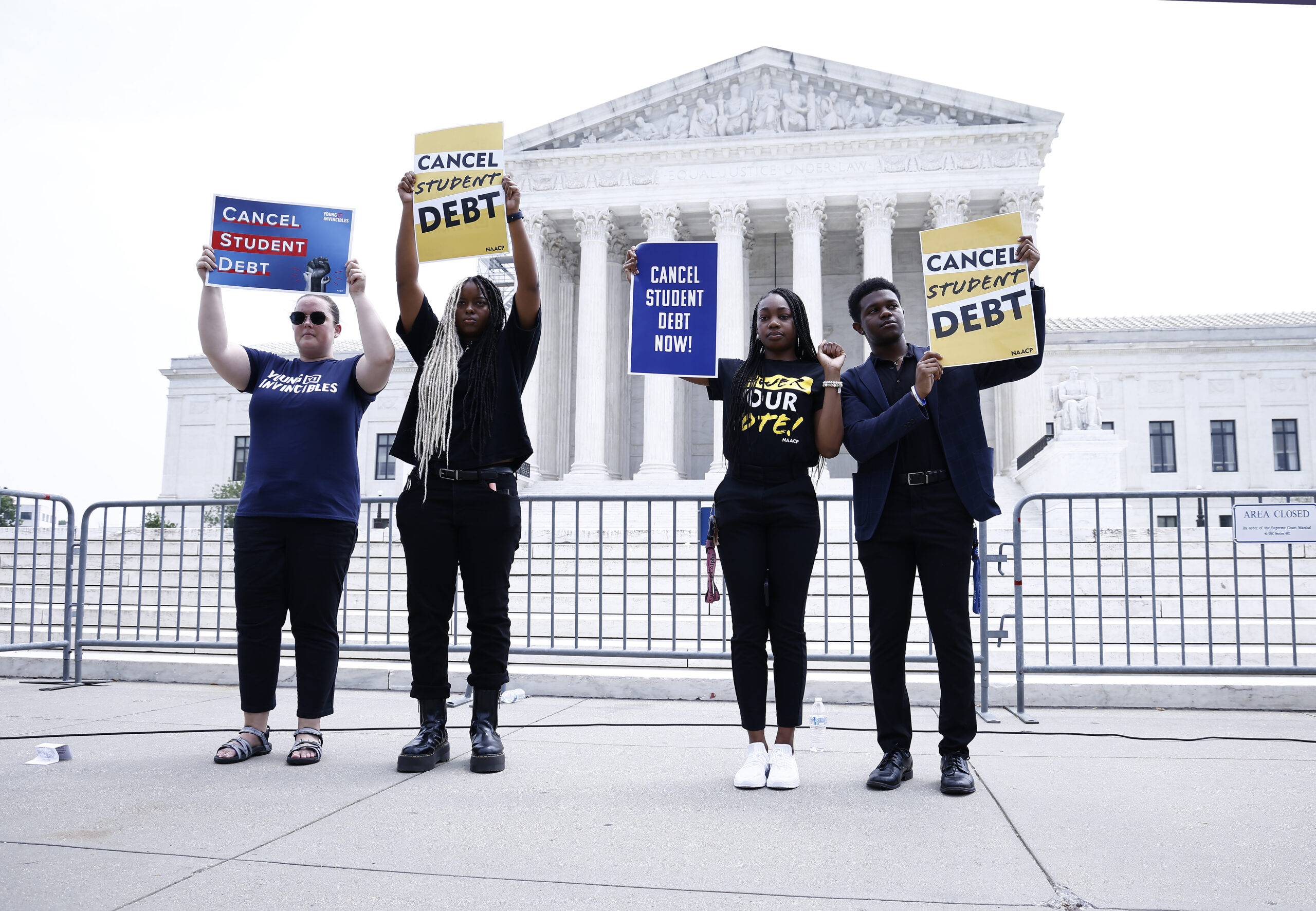In a significant blow to the Biden administration’s plans, the Supreme Court has ruled against the program to forgive student loan debt for over 43 million borrowers in the United States. According to ABC News, the 6-3 decision, written by Chief Justice John Roberts, concluded that the Department of Education exceeded its authority by attempting to eliminate more than $400 billion in federal student loan debt.
The program aimed to cancel $10,000 in student debt for borrowers earning less than $125,000, with an additional provision of up to $20,000 for borrowers who received Pell grants, using emergency powers due to the pandemic’s economic hardships.
Six Republican-led states, including Nebraska, Missouri, Arkansas, Iowa, Kansas, and South Carolina, challenged the program’s legality, claiming executive overreach. The Biden administration argued that the plan was lawful under the 2003 HEROES Act, which allows the government to provide relief to student loan recipients during a “national emergency.”
Roberts rejected the administration’s argument, writing precedent “requires that Congress speak clearly before a Department Secretary can unilaterally alter large sections of the American economy.”
Justice Elena Kagan criticized the court’s decision, contending that it overstepped its authority.
“From the first page to the last, today’s opinion departs from the demands of judicial restraint,” Kagan said in her dissent. “At the behest of a party that has suffered no injury, the majority decides a contested public policy issue properly belonging to the politically accountable branches and the people they represent.”
Black Women Will Suffer The Most
Earlier this month, The Motley Fool revealed that Black women are uniquely burdened by student loan debt. Black women have more student loan debt than any other group. Black women typically carry an average of $41,466 in undergraduate student loan debt within one year of graduating.
The increasing problem underscores the immediate need for specific remedies to tackle the systemic obstacles contributing to this inequality.
“I was ashamed about my [student loan] debt,” Tanisha Watkins, Ph.D. told 21Ninety. “I’m in a Facebook group that talks about student loan forgiveness. Seeing other people’s numbers made me realize ‘WOAH!’ Being part of this group has put in perspective that a 6-figure student loan debt is a lot, but there are people who have more. It put things in a bigger perspective.”
What’s Next?
The Supreme Court’s ruling is a setback for President Joe Biden, who made addressing student loan debt a significant campaign promise. The loan forgiveness program was unveiled just before the 2022 midterm elections, with Biden highlighting the life-changing impact it would have on middle-class Americans.
According to USA Today the Biden administration will now work to forgive student loan debt through the Higher Education Act of 1965. That piece of legislation authorizes the education secretary to modify, waive or compromise federal student loan under certain circumstances.
